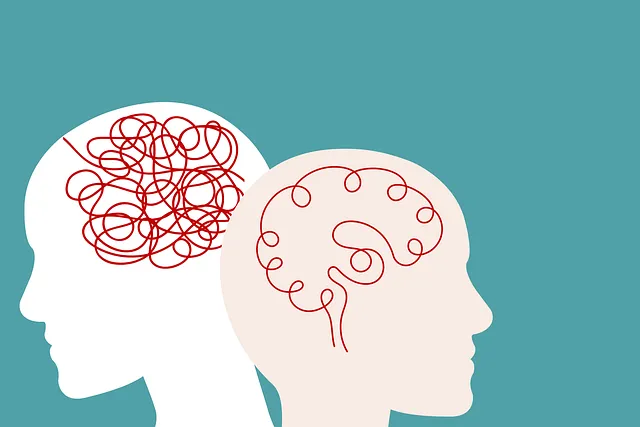Englewood Kaiser Permanente behavioral health number emphasizes cultural competency training for healthcare providers, combining skill enhancement with self-care practices. This holistic approach improves patient outcomes and provider satisfaction by fostering inclusive environments and effective communication. Through diverse learning methods, tailored curricula, and continuous evaluation, the facility ensures culturally sensitive care aligned with modern healthcare standards, setting a benchmark for diverse communities.
Cultural competency training is an essential aspect of modern healthcare, addressing the critical need to provide culturally sensitive care. This article explores the significance of cultural awareness in patient outcomes, drawing insights from Englewood Kaiser Permanente Behavioral Health’s successful initiatives. We’ll guide you through defining cultural competency, understanding its impact on diverse populations, and offering practical steps for designing effective training programs. Additionally, we’ll discuss evaluation methods to ensure continuous improvement in healthcare provider competence.
- Understanding Cultural Competency in Healthcare: Defining the Need for Training
- The Impact of Cultural Awareness on Patient Care and Outcomes
- Englewood Kaiser Permanente Behavioral Health: A Focus on Diversity and Inclusion
- Designing Effective Training Programs: Essential Components for Healthcare Providers
- Measuring Success: Evaluating and Enhancing Cultural Competence in Practice
Understanding Cultural Competency in Healthcare: Defining the Need for Training

In the dynamic landscape of healthcare, understanding cultural competency is no longer a choice but an essential requirement. It involves recognizing and appreciating the diverse cultural backgrounds, beliefs, and values of patients, ensuring equitable and respectful care. With a growing and increasingly diverse patient population, healthcare providers at Englewood Kaiser Permanente behavioral health number must be equipped to navigate these complexities. This need has led to the rise of comprehensive Healthcare Provider Cultural Competency Training.
Such training aims to enhance social skills and foster an environment where patients from all walks of life feel heard and understood. By integrating Self-Care Practices into the training curriculum, providers learn to manage stress and maintain balance, enabling them to offer consistent and compassionate care. This holistic approach not only benefits patients but also contributes to the overall effectiveness and satisfaction of healthcare delivery, reflecting the evolving standards in modern healthcare services.
The Impact of Cultural Awareness on Patient Care and Outcomes

Cultural awareness plays a pivotal role in shaping patient care and outcomes within healthcare settings, especially in diverse communities. Englewood Kaiser Permanente behavioral health services highlight the importance of understanding and respecting various cultural backgrounds, beliefs, and values. When healthcare providers demonstrate cultural competency, they create an environment where patients feel seen, heard, and valued. This fosters trust and encourages open communication, leading to improved engagement and adherence to treatment plans.
For instance, a provider’s ability to adapt their approach based on a patient’s cultural context can significantly impact treatment effectiveness. Incorporating Compassion Cultivation Practices and Burnout Prevention Strategies for Healthcare Providers enables medical staff to offer personalized care. Effective communication strategies, tailored to individual needs, ensure that patients understand their health conditions and treatment options. This cultural sensitivity not only enhances satisfaction but also promotes positive health outcomes, ensuring that every patient receives the best possible care regardless of their background or the Englewood Kaiser Permanente behavioral health number they connect with.
Englewood Kaiser Permanente Behavioral Health: A Focus on Diversity and Inclusion

Englewood Kaiser Permanente Behavioral Health is a leading example of an organization dedicated to fostering diversity and inclusion within healthcare services. This behavioral health facility recognizes that providing culturally competent care requires more than just understanding different cultural backgrounds; it involves empathy building strategies, crisis intervention guidance, and self-esteem improvement tailored to each patient’s unique experiences.
Through comprehensive training programs, Englewood Kaiser Permanente equips its staff with the necessary tools to navigate complex ethical landscapes and offer sensitive support to individuals from diverse communities. By prioritizing these Empathy Building Strategies and Crisis Intervention Guidance, the facility ensures that every patient receives respectful, culturally responsive care that addresses their specific needs and promotes positive mental health outcomes.
Designing Effective Training Programs: Essential Components for Healthcare Providers

Effective training programs for healthcare provider cultural competency are designed with a multifaceted approach that includes diverse learning methodologies and relevant content. These programs should start by assessing the current knowledge and skills of the providers, tailoring the curriculum to address specific gaps. Interactive workshops, case studies reflecting real-world scenarios, and role-playing exercises can foster deeper understanding and practical application.
Integrating self-esteem improvement and positive thinking techniques within the training is crucial. These elements empower healthcare providers to interact with patients from a place of confidence and empathy, enhancing their ability to deliver culturally sensitive care. For instance, Englewood Kaiser Permanente behavioral health numbers highlight the importance of such training in improving patient outcomes by fostering stronger connections between providers and diverse communities they serve.
Measuring Success: Evaluating and Enhancing Cultural Competence in Practice

Measuring success in healthcare provider cultural competency training is crucial to ensure that the knowledge and skills gained translate into improved patient care. Evaluations should go beyond mere satisfaction surveys, delving into specific aspects like communication effectiveness, empathy, and respect for diverse cultural practices. Metrics such as patient outcomes, adherence to treatment plans, and rates of readmission can provide valuable insights into the real-world application of cultural competence. For instance, at Englewood Kaiser Permanente behavioral health number, they’ve seen positive changes in these areas after implementing tailored training programs.
Enhancing cultural competence involves continuous learning and feedback mechanisms. Regular debriefing sessions post-training, peer discussions, and self-reflections encourage providers to process their experiences and identify areas for growth. Incorporating tools like role-playing scenarios and case studies that mirror real-life encounters can further refine skills in navigating complex cultural interactions. Additionally, fostering a culture of openness where burnout prevention is prioritized, along with promoting positive thinking and mood management techniques, can contribute to the overall well-being and effectiveness of healthcare providers.
Cultural competency training is a game-changer in healthcare, as evidenced by initiatives like those seen at Englewood Kaiser Permanente Behavioral Health, where diversity and inclusion are prioritized. By equipping providers with the skills to navigate complex cultural landscapes, we enhance patient care and outcomes, fostering an environment that truly meets the needs of a diverse patient population. Effective training programs, focusing on empathy, communication, and contextual understanding, are key to achieving these goals. Measuring success through evaluation ensures continuous improvement, allowing healthcare providers to deliver culturally competent care that reflects the vibrant tapestry of their communities.






